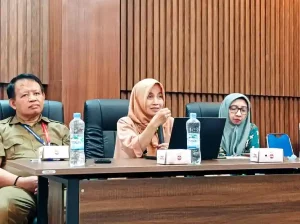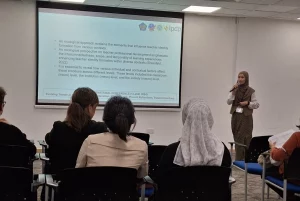UNAIR NEWS – Universitas Airlangga (UNAIR) held a graduation on Saturday, Dec 2, 2023. In this Graduation 235 period, 777 students who were officially confirmed as graduates.
UNAIR Rector Prof Dr Mohammad Nasih SE MT Ak did not forget to congratulate all the graduates. Furthermore, he also reminded them that this graduation was not the final line of their journey considering that their journey is still long.
“Besides congratulations, of course, we remind you that the challenges ahead are still long and extraordinary. Therefore, let’s face all our challenges with the best spirit and with character as Airlangga Knights,” said Prof Nasih.
Key to success
To face future challenges, Prof Nasih then emphasized to all graduates not to stop learning. According to him, knowledge is the main key to winning all the challenges and competition that will come their way in the future.
“Whoever wants a happy, successful, fulfilling life, achieve it with knowledge. Whoever wants a successful, happy, peaceful life in the afterlife, then achieve that also with knowledge,” he said.
“Then, whoever wants to achieve success, fulfillment, peace, happiness, either in this world or in the afterlife, the key is knowledge,” he continued.

Lifelong Learning
To gain all that knowledge, continued Prof. Nasih, there is no better way than lifelong learning. For him, learning is an unlimited process considering that everything in the world offers wisdom and can be an object of learning.
“To gain knowledge, there is no other key or way except by learning, learning, and learning. Learn throughout your life, learn from anywhere, learn from anyone, learn in any circumstances, and learn any time,” he added.

In an ever-changing world, someone can’t advance without adapting themselves to all these changes. Thus, he once again reminded all graduates to learn for the success of their adaptation.
“Therefore, once again the key is to continue learning, learning, learning because the world never stops. The world continues to change, the world continues to experience differences, and the challenges are of course also different compared to our current challenges,” concluded Prof Nasih.
Author: Muhammad Badrul Anwar
Editor: Khefti Al Mawalia









